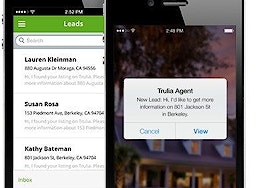The release of the iPhone in 2007 had a significant impact on mobile computing. It also ignited what is now referred to as the “BYOD” (bring your own device) revolution.
BYOD is simply a model where employees bring their preferred devices, which they have purchased and own, to the workplace.
This model is particularly relevant in the real estate industry where the majority of sales associates are independent contractors, and brokers and IT departments cannot dictate which devices or platforms its Realtors utilize.
The iPhone captured the imagination of consumers, but gave IT departments across the U.S. anxiety attacks. Before the iPhone and mass adoption of cloud services, IT departments had a tight grip on internal networks and systems. That was true even of mobile when BlackBerry smartphones ruled the corporate world.
With the introduction of the iPhone, IT pros faced new concerns about security, privacy and other technical issues. Change can be difficult. For the most part, IT departments have evolved, but some challenges remain.
In the real estate industry, a broker’s IT infrastructure is expected to seamlessly support all of the devices brought into an office. In some cases, one agent will have three or four devices, so this is easier said than done.
I recently had an in-depth conversation with Scott Farrell, chief operations officer at Helen Adams Realty in Charlotte, N.C.
Helen Adams Realty has done something really cool. It decided to arm its real estate agents with iPads, preloaded with company apps and tools. The initiative has dramatically changed the way the organization operates. It has had a positive impact on productivity, efficiency, recruiting and more.
Farrell is excited about the new direction the brokerage is taking.
“The combination of our new training programs combined with technology has created a platform to create and nurture new agents that will take us another 20 years,” said Farrell.
But with sales mangers and agents now using as many as three devices, Helen Adams had to upgrade its infrastructure and hardware.
“We reprogrammed our current access points to include more IP addresses, and we shortened the lease time for users to alleviate IP address conflicts,” Farrell said. “We are adding additional wireless access points in a couple of places to increase coverage.”
Farrell’s also monitoring bandwidth and building a strategy for wireless printing.
“We have increased bandwidth at one office location and are currently reviewing other offices to see if we need to increase bandwidth across the board,” he said. “In 2014 we will be upgrading our copier fleet and will make sure we have a universal wireless print option. This is our largest gap in technology right now.”
There are many pros and cons to a BYOD workplace. Let’s take a look.
The pros of BYOD brokerages
Cost savings:
There is an immediate cost savings when the brokerage isn’t responsible for covering the cost of laptops, smartphones and tablets for sales managers and administrative staff.
Productivity:
Mobile has empowered real estate pros to work productively out in the field. Mobile apps are easy to use and can increase work efficiency.
Accessibility:
Having access to critical data right at your fingertips can be incredibly valuable. This is true across the board — from accounting to the marketing department.
The cons of BYOD brokerages
Security:
Data leakage is detrimental in any industry, and real estate is no exception. As Joanie Wexler appropriately wrote in Buck that BYOD trend: 5 justifications for not conforming, “You never want to get nonchalant about security matters. As you protect employee devices from malware, data theft and privacy invasions, it can be simpler and less error-prone to apply controls and maintain software and patch versions on devices you procure, provision, track and understand.”
Infrastructure:
Having three to four devices per person connecting to an office network can add stress to infrastructure. Upgrading resources such as bandwidth, routers and other IT hardware is critical and will improve the user experience.
Policy:
With the influx of employee-owned devices flooding the workplace, new office policy addressing liability and privacy may need to be drafted. Wearable technology, which appears to be the next wave of consumer devices to be adopted, could act as a catalyst.
As Scott Koegler wrote for Forbes in his piece, The Next BYOD: Glass In The Enterprise, “The same early adopters who brought advanced smartphones into the enterprise will buy devices such as Google Glass on their own and then expect to be able to use them for work. It is incumbent upon IT to put the proper technologies in place so that use of the new devices doesn’t cause security issues.”
Wearable technology is certainly in its infancy and there are always challenges with new tech. Will products such as Google Glass or Samsung Galaxy Gear find their way into the real estate office in the immediate future? I reached out to Rob Wiebusch, director of digital innovation at NP Dodge Real Estate in Omaha, Neb., to get his thoughts on wearable technology.
“Every brokerage has early adopters just for the sake of the ‘early adopter’ title,” said Wiebusch.
“Wearable technology has an uncertain future when it has to be connected to a larger device via Bluetooth, such as a phone or tablet. The next round of wearable technology products need to be devices that stand on their own. It is hard to see the relevance or the necessity of a wristwatch that does a few things that a smartphone does, when the smartphone is still in your pocket. I say the jury is still out.”
To summarize, a BYOD workplace is advantageous. However, it is not a perfect model. In order to support a plethora of devices, brokers should be prepared to upgrade its office infrastructure and be diligent in terms of security, data and privacy.
Tom Flanagan is the director of information technology at Residential Properties Ltd. in Providence, R.I. You can contact him at tflanagan@residentialproperties.com or @tflan on Twitter.







